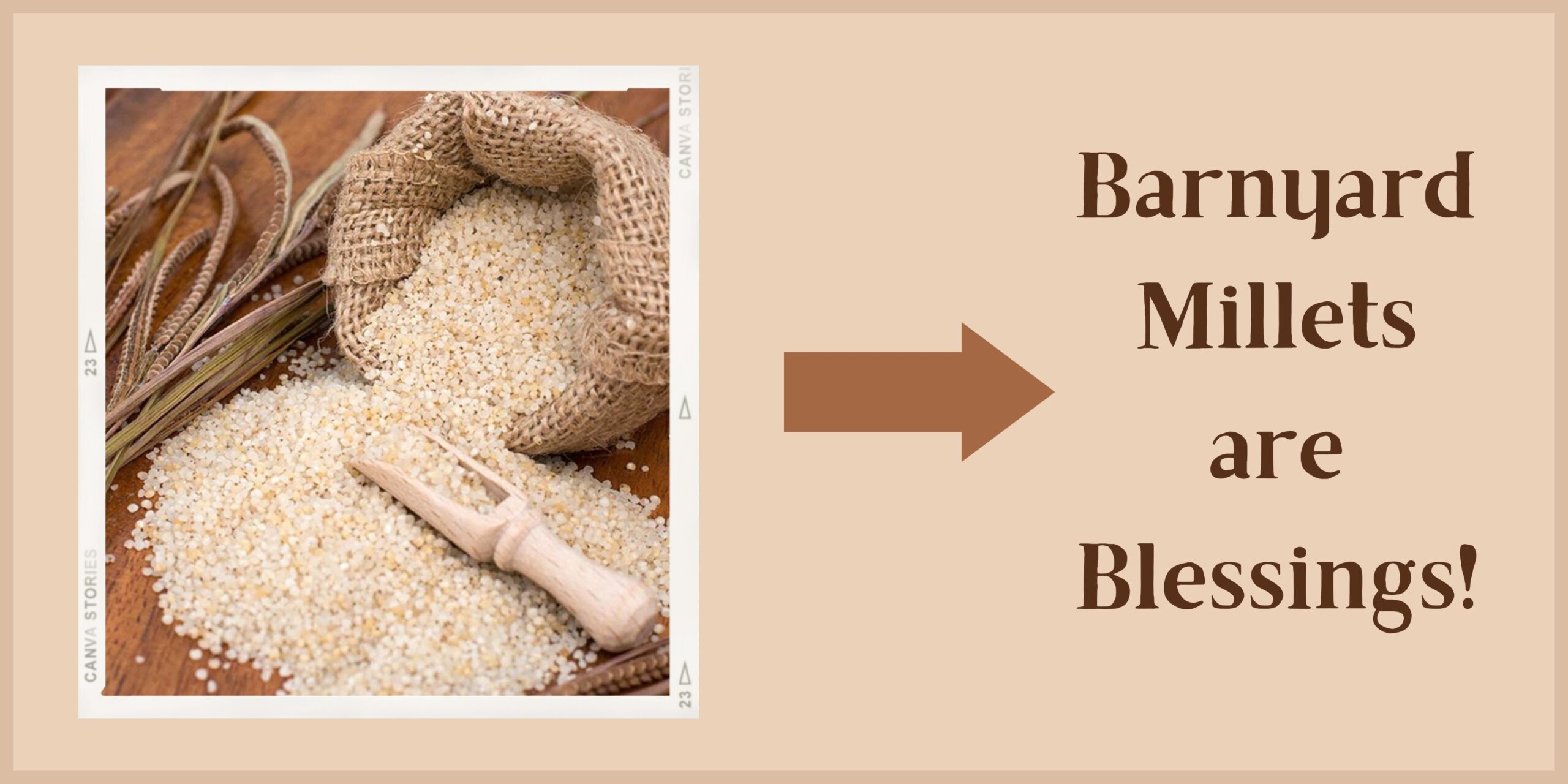
Barnyard Millets are blessings!
This post goes into detail about all of the benefits of barnyard millets. Barnyard millets are grown and eaten by both people and animals all over the world. Its botanical term is “Echinochloa esculenta.” It belongs to the “Poaceae” family of grasses and, more specifically, to the “Panicoideae” species.
Barnyard millet can be used in many ways to help people. In Ayurveda, it has been used to treat a number of illnesses. Barnyard millets are resistant to drying out, heat, and other poor weather conditions. So, they have a lot of nutrients packed into them. This is what makes barnyard millets unique and why they are good for your health.
Millets in general have lots of benefits. In particular, barnyard millets are nutrient-dense little packets. There is a lot of iron, protein, and fibre in them. The amount of iron in 100 grams of barnyard millet is 100% of the daily value and 67% of the daily value when pregnant. It also has a lot of calcium, which might be good for your teeth and bones.
Health benefits of barnyard millets
In 100 grams, barnyard millet has the following nutrients:
- 55 grams of carbohydrates
- 11 grams of protein
- 3.6 grams of fat
- 22 mg of calcium
- 18.6 mg of iron
- 0.33 milligrams of vitamin B1
- 0.10 milligrams of vitamin B2
- 4.2 milligrams of vitamin B3
- 13.6 grams of dietary fibre
- 300 kilocalories
Strengthening the immune system just like organic food products is one of the benefits of barnyard millets. There is a good amount of iron and zinc in barnyard millets. Both zinc and iron are essential for a healthy immune system. In the end, eating barnyard millets helps the body fight off diseases and other foreign invaders.
There are a lot of phytochemicals, like polyphenols, in barnyard millets. They fight free radicals and get rid of toxins. Because of this, they protect us from many diseases, such as heart disease, cancer, and diabetes.
Millets have a lot of amylase retrogradation in their carbohydrates, making their starch stronger. Because of this, it may be given to people with heart disease and diabetes. Barnyard millet helps people with diabetes manage glucose better and lowers their blood sugar levels.
Uses of barnyard millets
There is a lot of fibre and protein in the barnyard millet. Because of this, it is better than wheat and other grains for people with diabetes. A study found that barnyard millet has a low glycemic index of 41.7. Because of this, it won’t raise your blood sugar right away.
One of the benefits of barnyard millets is that they can help relieve constipation. Barnyard millet has a good amount of both soluble and insoluble fibre. Dietary fibres leave the body the same way they came in. So, they help the body digest food and get rid of waste. People have long thought that grains could help with constipation. Barnyard millet is also a great food to eat if you have constipation disorder.
Millets must all be soaked before cooking to get the most nutrition out of them. You could soak and wash this millet for about an hour to save a few minutes of cooking time. On average, this millet takes about 20 minutes to cook. That’s all there is to it. You can replace it with rice right away and use it in any dish that calls for rice. But remember that these grains are smaller, rounder, and cook more gently. Or, the whole grain of barnyard millet can be ground into a fine flour and used in traditional recipes like porridges, pancakes, and flatbreads. Millets can be used as an alternative to rice.
Advantages of barnyard millets
Even barnyard millet doesn’t have gluten in it. Because of this, millets might be a good choice for people with celiac disease.
One of the benefits of barnyard millets is that they help lower blood cholesterol. The amount of carbs and fat in barnyard millet is low. Barnyard millet has just 3.6 grams of fat per 100 grams. People who eat barnyard millet every day may be able to keep their hearts healthy. It also helps lower the amount of cholesterol in the body as a whole. So, barnyard millet helps you lose weight and speed up your metabolism.
In short, there are many good things about eating this healthy food. It’s hard to put all of them into words. Millets are a traditional food that people all over the world eat. But it is still a food that isn’t very common. We need to eat it every day if we want a healthy life.